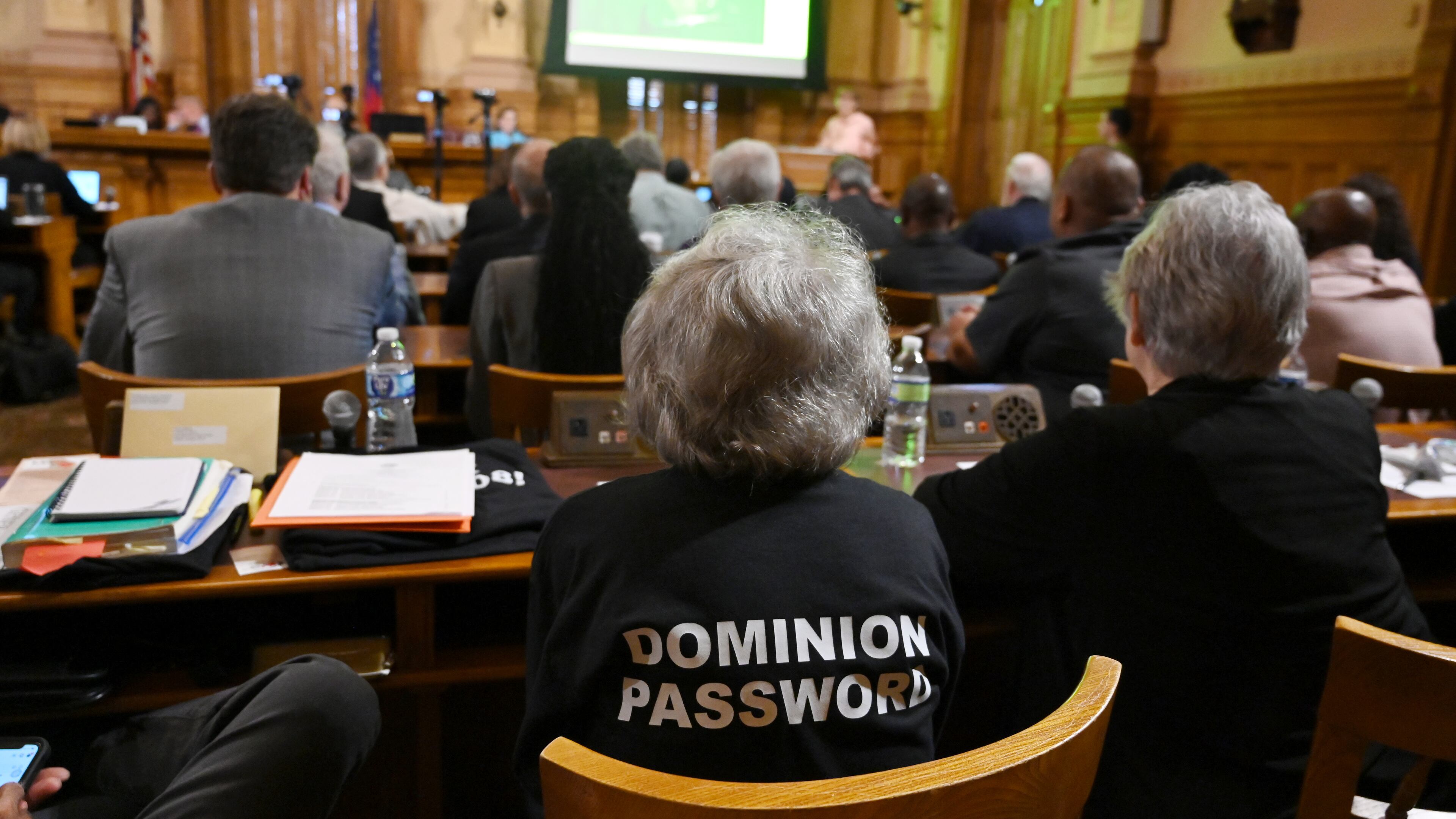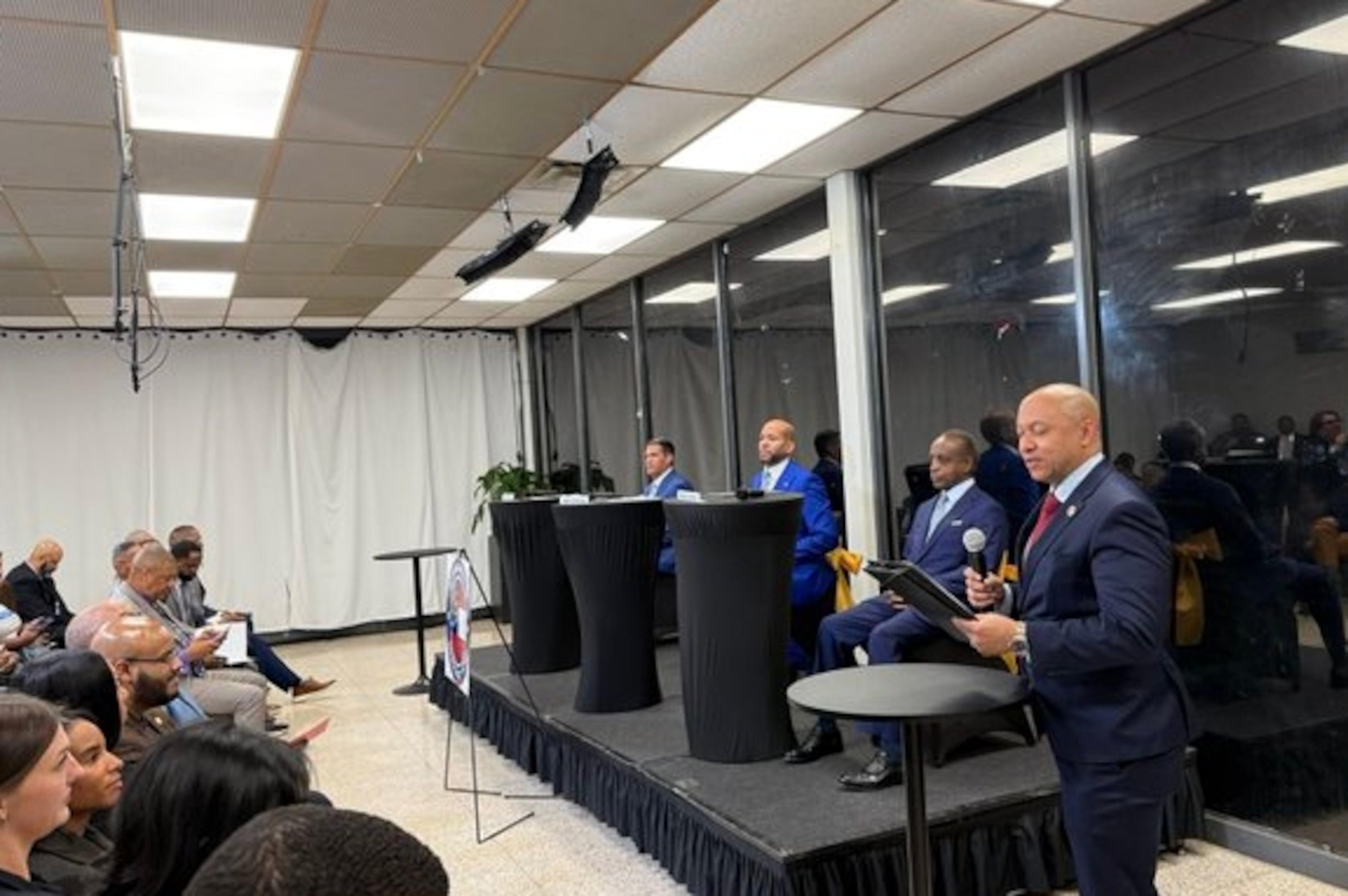TORPY: Team GOP on board with election results - this time, at least

My AJC colleague Mark Niesse, who has covered voting issues since long before the 2000 election, recently wrote a story headlined: “Election confidence rises among Georgia Republicans after Trump’s win.”
Republicans, until recently a suspicious lot, are nearly unanimous — 98% — in believing the 2024 election was on the up-and-up, according to a University of Georgia survey.
It was a “Yeah, duh” moment, akin to a headline saying: “Georgia Bulldog fans now think refs are fair after UGA win.”
Nothing cements the feeling that all is right in the world as a well-deserved victory. And for winners, all wins are well-deserved.
For the past four years, a sizable chunk of Republicans say they knew that the scheming Dems and rigged voting machines defeated their guy, just like Bulldog fans are certain of efforts afoot to sink UGA coach Kirby Smart and his team.
Political partisans and sports fanatics are birds of a feather. There’s the deep fervor of committing to a tribe of the like-minded. Belonging instills an emotional extension of one’s self. Of shared beliefs, dogmas and/or fight songs. There’s the opponent, who with all its followers, will do whatever it can — no matter how under-handed — to win at all costs.
Finally, there’s reflected glory — the “WE win” sensibility. And, of course, there are the sore losers.
After losing in 2020, then-president Donald Trump and his faithful unleashed a torrent of conspiracies that in football parlance would be called “flooding the zone.” But instead of flooding it with receivers, Team Trump did it with taurus excretus.

It worked. After 2020, just 60% of Georgia Republicans thought the election was fair. Other national polls found just a third of Republicans thought the count was honest.
On the other team, just 84% of Democrats thought ballots were counted correctly this time, the UGA study found, down from 96% in 2020. Although there was a drop in Democrats’ confidence, it seems overall they are a more trusting lot.
But, they can go into sore loser mode, too.
In 2018, Democratic gubernatorial candidate Stacey Abrams came up just a percent short in the tally. She ended her campaign but wouldn’t concede, accusing Brian Kemp, then Georgia’s Secretary of State, of voter suppression and decried the “erosion of our democracy.”
Hillary Clinton, too, griped about Russian interference in 2016 helping propel Trump into office.
An ABC poll at the time said just 58% of Hillary supporters thought Trump was legitimately elected.
However, Clinton and Abrams did not gripe as feverishly, and continually, as Trump.
Largely, your confidence in the system depends where you get your news. According to the Pew Research Center, “Americans who get most of their political news on social media display less confidence in the public’s acceptance of election results, regardless of the winner.”
No question, those memes will rot your brain.
Mind you, there was never any legitimate evidence of widespread fraud in 2020. But that didn’t matter. For years, Trump and his minions whipped up anger and suspicion and pushed to change voting laws to give him an edge.
Just a visit to a Georgia Election Board meeting made it plain how the rage seethed within GOP throngs. The noise level sometimes resembled feeding time at the zoo.
Two weeks before this year’s election, an AJC survey found that 81% of Democrats and just 57% of Republicans had at least some confidence it would be conducted fairly.
And then Trump up and won and the complaining and the conspiracy talk and the warnings about the avalanche of Democratic election fraud ... just ... stopped.
In my noodling around on the subject, I came across Daniel Wann, a psychology professor from Murray State University who is a pioneer in the study of sport fandom.
Sports, he says, is an endeavor that has you losing roughly half the time. This is also like politics. (I must add that in Georgia politics, the Ls far outweigh the Ws for Democrats, who are kind of like the Falcons.)
One strategy to cope with defeat, both in sports and politics, is the old “we-got-robbed” complaint.
“Fans will find a way to move the loss off the team and onto another entity: ‘It was the ref’s fault,’“ Wann recently told author Michael Lewis in a podcast about sports gambling.
Earlier in the year, coach Smart and UGA fans (I am one) complained bitterly about the refs overturning a call in Texas, even though the Dogs ended up winning that game.
But in the recent overtime thriller with Georgia Tech, the Bulldogs might have gotten away with an illegal hit that caused a fumble, which paved the way for an eventual victory.
A week later, the Texas coach griped on national TV that the refs weren’t calling penalties on the Georgia boys. Fittingly, the outrage and sense of victimhood among the Georgia collective was nowhere to be found.
As I’ve said, victory will do that.
Obviously, despite the similarities, there are fundamental differences in fandom and political partisanship.
In sports, the other side might be able to score more points or even flatten your quarterback. In politics, the other side can raise or cut your taxes.
Or chisel away your rights.



